Authority is not law. Reason and empathy are Law. Read more →

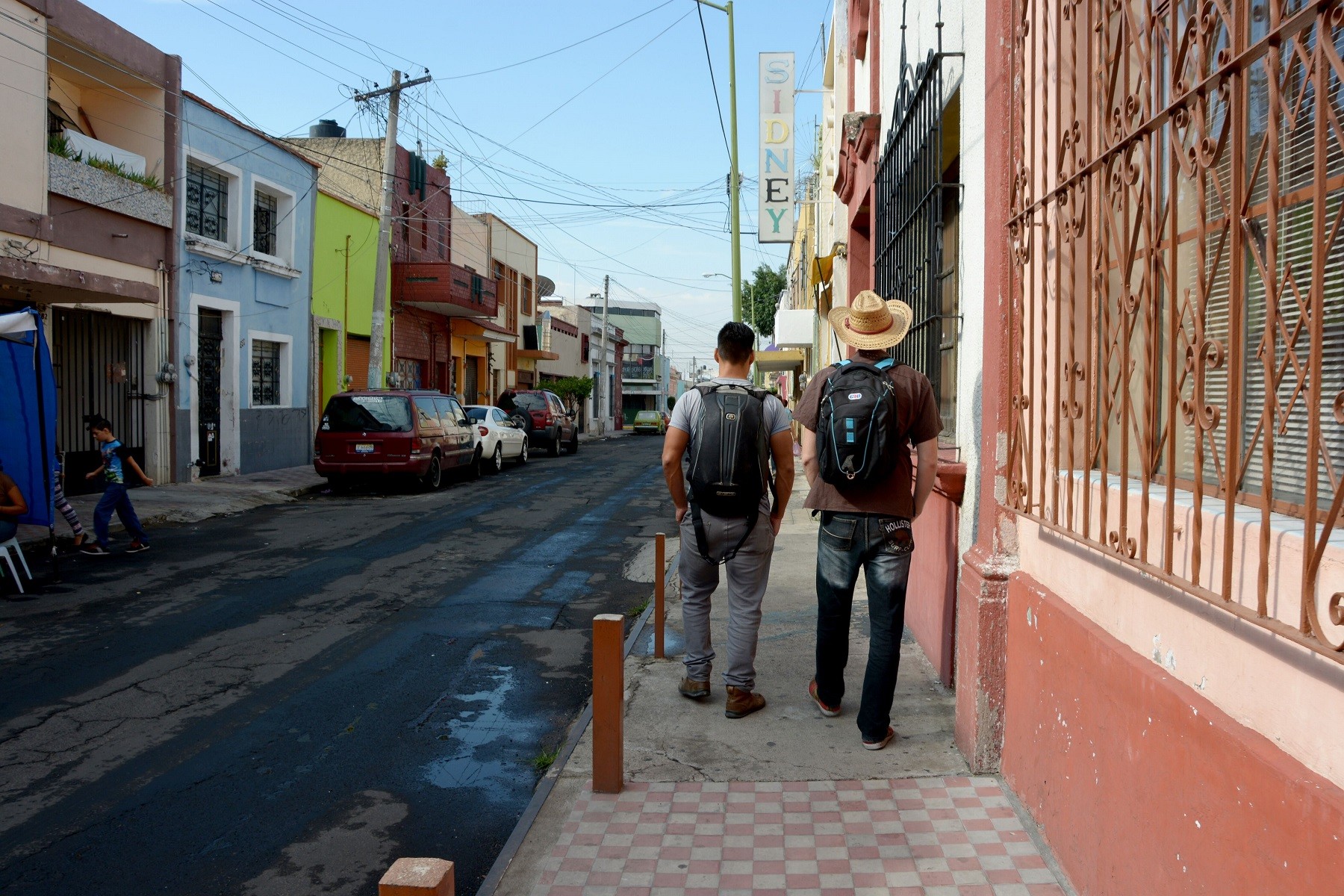

Authority is not law. Reason and empathy are Law. Read more →

Why does capitalism have such a bad name, and does capitalism in the broadest sense involve chanting in the woods? Read more →

What decentralised freedom means, why it’s important, and how it will be achieved Read more →
If you believe government is needed, and someone suggests that it isn’t, you might be rather distressed. You might start to picture bands of rogues roving the land without cease, raping and stealing. In the minds of many statists, this fear is so real that it seems certain. But of course, little is certain in life, and we can no more say for sure that warlords will take over than we can say that they won’t. However, we can at least begin to estimate the likelihood.
If you’re like most people, it’s almost certain that you are threatened by group of people which claims to help you, a group which takes your money without asking first. Just as we can’t be sure that warlords won’t take over in a stateless society, it’s not certain that this violent group won’t grow larger, to expand to a level of control where many are fearful and even people with friends in high places can be destroyed without anyone being punished. In fact, such a case is much more likely to be found in a society with a state, than a society without a state, as the power structures are already there. In a stateless society, if these structures form, they’re likely to be smaller. It’s easier to go from 8 to 10 than it is to go from 0 to 10.
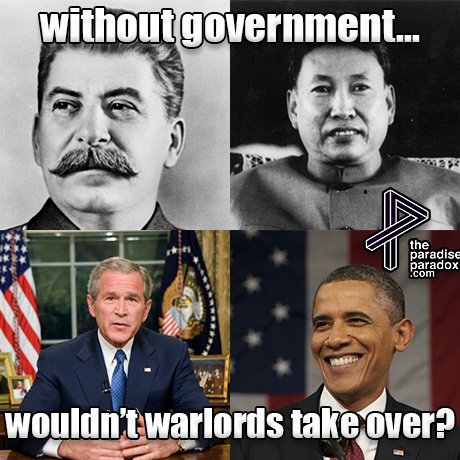
In the end, the reason cling onto these ideas is because of a deep-seated fear. People want to feel like everything is under control, even if it’s by a someone who, in their hearts, they know is a devil. Their fear leads them to fearmonger, spilling endless “what if” cases, none of which can be allayed by logic alone. As I said, nothing in life is certain. Yet, by embracing our uncertainty, and our fears, we can learn to overcome them. It’s scary to stand at the edge of darkness, not knowing what lies within. It takes heart to put your foot over that threshold, yet, that is the only way that humans grow – by putting ourselves in realms where nothing is sure, but everything is possible. Screw your courage to the sticking place, and feel just for a moment, what it would mean to be free.
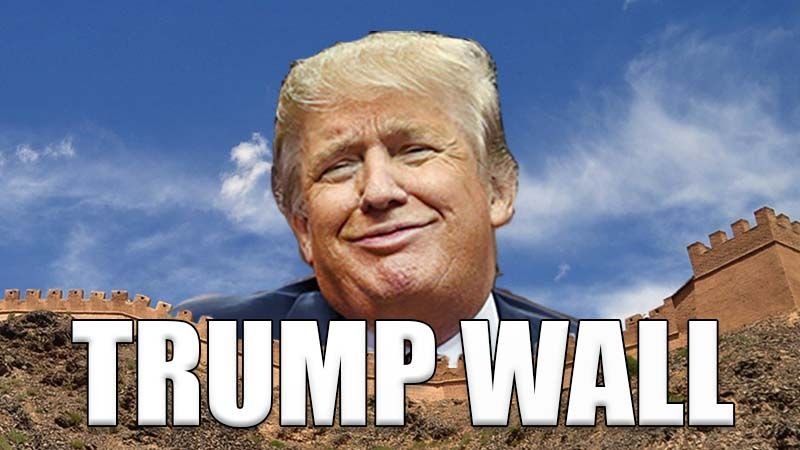
Maybe there are still some arguments about Trump’s border wall which I haven’t heard yet… But the ones that I have heard are rather pathetic. The wall conversation seems to go like this:
We need a wall to keep people out to stop them taking welfare.
Really? Do naturalised citizens actually take more welfare than natural born citizens on average? Do you have any statistics to back it up?
Hm I uh… I do have some statistics about how immigrants are more likely to vote Democrat.
Alright, that’s something – not exactly what I was looking for though. You don’t have statistics about why they vote Democrat. You know, even if people come to work in your country, they don’t need to have citizenship, voting rights or welfare. People can get residency or working visas.
Ohhh yeah… I’m sure all the socialist politicians will maintain that rule even if it costs them votes.
Okay… but if you’re going to play that card, there’s nothing you can do politically to solve this problem. A wall certainly won’t help. The socialist politicians will just fix things so people can walk right over.
Alright alright, we can go around like this forever. If we didn’t have welfare, we wouldn’t need a wall. But we have, so we do.
So building a wall that costs billions of dollars is a perfectly reasonable, rational and possible thing to expect, but attempting to curb welfare is impractical and impossible. I see.
Here’s an interesting article which talks about why such a wall would be pretty useless: 8 things you need to know about Trump’s wall
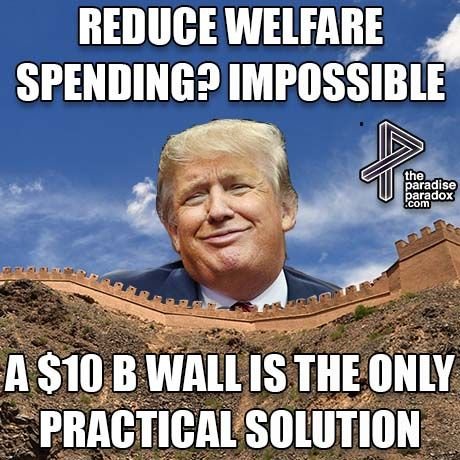
To download the audio, right click and press “save as”.
How does it feel to be free?
When you know that nobody can make demands of you. When you know that you are the greatest authority in your life. When you know you get to choose what you can do, and others can choose what is right for them. How does it feel to be free?
When you can travel the world without asking permission, without having to pay to pass an imaginary line. When the skies and the world are open like a great big adventure. When you can cross a continent, without having to prove to anybody who you are. When your face is your passport. How does it feel to be free?
When you can work for whom you like, and whoever likes can work for you, in the way you both choose. When you know your life is your own responsibility, and you know it’s your responsibility to take care of those around you. When you never say “Someone (else) should do something about it.” How does it feel to be free?
When your projects grow like spearmint on a wild and open plain. When you don’t need a licence to innovate. When you know you can make it, because the evidence is all around you. How does it feel to be free?
When everyone you love, you do so not because you’ve been trained to do so, not because you’ve been forced to do so, but because you choose it. When everything you hold dear sits in that purest place of your heart. When your beliefs are aligned with your spirit. How does it feel to be free?
How does it feel? That’s how you should feel.
Cover image modified and used under Creative Commons – https://moyanbrenn.com/
To download the audio, right click and press “save as”.
There is a principle of law that is acknowledged and often enforced all around the world, that if someone interferes with another’s person or property, they will be punished. For example, if you break down someone’s door without a damned good reason, such as the prevention of harm to an innocent, if you are caught and proven guilty, you will be punished. Likewise, if I approach someone and threaten them into giving me money, if I am caught, I will be punished. Of course, if it is found that I was in a very desperate situation such as having to feed my family, this will be treated as mitigating circumstances and the sentence will be reduced. However, I will still be punished.
Given the choice, would you prefer to live in a society where everyone who broke down doors without a very good reason were punished, and everyone who threatened others into giving them money were punished? Or would you prefer to live in a society where certain classes of people had an exemption, where they could break down doors indiscriminately, without good reason, and threaten people into giving them money without being punished at all?
If a person doesn’t give the question its full consideration, most people will say, of course they would prefer to live in a society where the law is applied evenly. But what is the full extent of this proposition?
Police, having no right to arrest anybody whom they didn’t reasonably suspect of harming someone or their property, will decide to keep mostly to themselves, or find productive ways of maintaining the peace, by establishing ties with the community and gaining its trust. Instead of demanding someone pull over for driving too fast, they would calmly and politely ask, and attempt to persuade them that their actions exposed themselves and others to undue risk.
Judges, knowing that they will be liable for any command they make, will be unwilling to enact any punishment against peaceful people, for example, for buying or selling drugs.
Politicians would be scared to pass any legislation punishing anyone who hadn’t harmed another – making the job of politician almost completely unnecessary. And they certainly wouldn’t call for acts of war which endangered the lives of innocent civilians, because every innocent killed could be a charge of manslaughter. Likewise, soldiers would refuse to attack unless they could be certain they were only attacking a legitimate threat.
Tax collectors would decide to change tactics, knowing they couldn’t threaten anybody into getting their money, and so they would instead canvas for donations, or turn to charging for individual services.
If you agree with the premise that those who injure, threaten or steal from others should be punished, you might have to rethink what the problems with the world are, and what your idea of an ideal world might be. If you disagree, and believe that certain classes of people should be free to attack, threaten and steal from others, and even commit mass murder, then again I would suggest you reconsider where your ideas might lead, what kind of ideal world they imply, and whether that is really the kind of thing you want to support, in your heart or in your actions. Do you really want to be a detractor of civilisation, welcoming violence as necessary, along with all of the abuses of power that come with it?
Making a more peaceful world isn’t easy. There will be challenges along the way, inventing new ways of solving problems with less and less violence, or no violence, when previously we believed they were only solvable with violence. And maybe we’ll never achieve such a thing in our lifetimes, or in any lifetime. But when you look back on your life, with your dying breath, will you be content in knowing that your entire life you supported the status quo, that violence is a requirement? Or would you be more content knowing that you dared to dream, to imagine a world without war, without police brutality and abuses of power, where the word “civilisation” is not a euphemism for a society dominated by the threat of violence, but, through an entire population becoming civil, is a literal fact.
I’m not asking much. I’m not asking you to do or say anything, or even exert any effort. I’m just asking you to let go of one idea, the idea that “violence is necessary” – the conviction that even an ideal world must include threats of violence – because whatever happens, the thought of dominating your fellow man out of necessity can never make you happy. To liberate yourself from this idea is to open up new possibilities, to open yourself to compassion for your fellow man, and to embrace the innocent as worthy of your protection.
To download the audio, right click here and press “Save as”.
If you’re not looking for alternatives to government, modern democracy and economies dominated by centralised control of currency, then you’re just not aware how bad things are. To go about your daily life, you might not have to confront these issues. Though you complain to the cashier about prices rising and blame the person or company that’s right in front of you, though you never stop to think about the deeper causes. You complain to your insurance agent that his prices have risen 10%, while the CPI is at 2.6%, but you never question why such a thing as a CPI exists in the first place.
It’s something like living in what you think is a happy marriage – a “satisfied” marriage . You’re more or less nice to your partner and your partner is more or less nice to you. You live together; you’re both financially comfortable; perhaps you even share intimacy from time to time. Yet, one day you wake up and can’t ignore the signs that your partner is cheating on you, or has no passion, or is completely indifferent to your presence. You drive to work and yell at the guy who cuts you off, and that sudden outburst gives you the chance to bury your overwhelming suspicions. You distract yourself with your work, forget about your paranoid, careful, and accurate analysis, and push yourself in denial for another few months. That is something like how a first-world central bank-dominated economy is. You can ignore it, and deny it, until one ominous day, in which you cannot.
Many people in the world don’t have that privilege – the privilege of ignorance of how badly they are being fucked. They have that personal knowledge because they have lived through several economic crises, currency collapses and devaluations. They’ve had to walk in the rain to trade Deutschmarks for pounds with shady characters in a dark alley. They’ve had to walk into a supermarket with the dread that a ruble is no longer worth five “standard units”, and they may not have the money to cover their groceries.
Normalcy bias affects everyone who has some semblance of normalcy in their life, and the more normalcy they have, and the longer it is sustained, the greater the bias.
The question is, what is going to happen in those countries where people have never really gone through an economic collapse or a currency crash, when it finally happens? What happens if the US dollar collapses, reducing central banks’ reserves to worthlessness? How far do the dominoes fall? Are people going to panic? Will there be a state of anomie, with people looting and killing for food and water? Will people be reduced to shock when they realise things that were once commonplace are, at least for today, impossible? What happens if there’s nothing in the supermarket? What happens if there is something in the supermarket, but the hundreds of dollars in your bank account are not worth anything by the time you get there?

The French government declares that no supermarket can legally throw out food that could go to charity, and you applaud. I won’t deny that it is novel, but can it ever be moral? Read more →
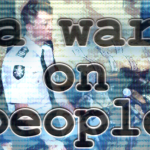
Audio for “The War on Drugs is a War on People”. The other day I criticised someone for repeating some hearsay from the media, for furthering the agenda of perpetuating the War on Drugs. She asked me why she shouldn’t want to perpetuate the War on Drugs, especially when it is an awful drug like ice – that is, methamphetamine.… Read more →